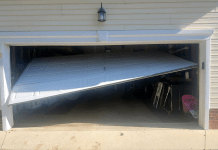
After weeks and months of searching, you finally found a new home to move into. You’ve signed the papers and sealed the deal on the dotted lines. What’s next? Now comes the most exciting yet challenging part, and that’s moving into your new home. For most, moving can be very stressful and exhausting. It’s like moving your entire life into a completely new address, with lots of boxes and bulky things with you.
Not to mention you’ll need to start all over again in arranging and organizing your new home. But before you get into that, there are also necessary preparations you’ll need to tend to before you finally leave your old home.
Thankfully, here are twelve clever tips that can help reduce stress and achieve a seamless move. As long as you have this moving checklist, you’ll know which tasks you shouldn’t miss.
1. Provide Notice
If you’re renting an apartment, always notify your landlord first. Most often, it’s stated in your contract how long your notice period should be; it can either be a month or two. Most importantly, make sure your preferred moving date is already finalized before you hand in your official notice.
2. Declutter And Book A Waste Collector Company
After notifying your landlord, don’t start packing just yet. It’s always best to declutter your entire house first. This way, you can get rid of all the things you won’t need or use in your new home. Plus, this will lessen the things you’ll need to pack. Furthermore, it’s important to secure booking a waste collector company such as City Waste Rubbish Collection and other similar companies to handle your waste.
Choose a schedule for them to pick up the non-essential items that you’re throwing away. For the reusable ones, you may choose to donate them, give them away, or sell them if you’re up for it. The point is getting rid of your excess things in a proper way.
3. Consider Your Kids And Pets
For those who are moving with kids, don’t forget to notify their school about your children’s new addresses. You might need to send the school and their teachers with new copies of your addresses so they won’t miss changing it on their school records. It’s also recommended that you book for child care in advance for the moving day.
If you have pets, you can book for a cattery or kennels in advance for the moving day as well. This way, your kids and pets are kept safe since the moving day is expected to be really messy, busy, and chaotic.
4. Book Your Moving Services When Needed
Some movers tend to DIY and choose to handle the entire moving process on their own. Meanwhile, some would also prefer availing of professional movers, especially if they’re moving plenty of bulky furniture and fragile items. If you’ve decided to avail of professional moving services, make sure to research your chosen company and book with them in advance. This way, you can budget accordingly according to the quotation and services they offer.
5. Update Your Details
There are so many places, persons, and organizations that you’ll need to notify about your new address. Here are some of the important people you shouldn’t miss on this important announcement.:
- Your Jobsite and employer
- Utility companies
- Phone and internet providers
- Local council
- All types of insurance providers
- Family doctors, dentists, your pet’s veterinarian
- Banks
- Schools of your kids
- The DVLA
Moreover, as you notify your employer, it may also be best to inform them in advance about your request for a few days off, especially around the days or week of your moving date.

6. Pack Up
This is the part where you’ll have to start packing seriously for maybe four to eight weeks in advance before your moving date. The earlier you start packing, the better. This way, you can ensure that you won’t miss anything. Plus, you can calmly take your time in carefully arranging each item in its respective boxes. You can always look for online tips on how to pack your things in the proper sequence and manner. Most importantly, don’t forget to label every item and box as clearly as possible.
7. Prioritize Your Valuables
Valuables may mean your most precious pieces of jewelry and very sensitive and important documents. As much as possible, keep these items close to you and never mix them with other items and furniture. These things are best kept with you in your car during the moving day. Some of the essential documents you’ll need to keep include:
- Passports
- Identification Cards
- Driving license
- Birth certificates
- Marriage certificates
- Credit cards
- Bills
It’s best to keep these things in a sealed plastic envelope to avoid them from getting lost or getting wet during the moving process.
8. Notify Friends, Families, and Neighbors
Don’t forget to notify the special people in your life about your upcoming house move, such as your friends, families, relatives, and neighbors. You can also ask for their support and help in packing your belongings when needed. Who knows, maybe they’d organize a farewell party or going away dinner for you and your family.
9. Reconfirm With The Estate Agent
As your moving date is getting closer, make sure to confirm and reconfirm with your estate agent that your moving date is going ahead as originally planned. That way, you’ll know if any delays might happen and could potentially ruin all your service bookings.
10. Pack Your First-Night Essentials
Understandably, the day before your moving day may be overwhelming and can make you feel a lot of pressure. Don’t forget to charge your gadgets and mobile phones, which are handy especially on the moving date. Moreover, pack your first-night essentials, which you can use on your first day at the new house. Usually, unpacking your boxes is done starting on the second day after you have moved.
Some of the first night essentials may include:
- Beddings and Pillows
- Toiletries for the family
- Food and water for the family
- Snacks
- Chargers
- Change of clothes, work clothes, and sleeping clothes
- Work clothes
- First aid kit
- Travel cot (for babies)
- Night light, flashlights, lightbulbs
- Pet food
- Essential cleaning supplies/rubber gloves
- Bin liners
- Pen and paper
- Paper towels/wet wipes
Separate your first-night essentials on a different box or bags, which you can easily access by the time you’ve reached your new home.
11. Move Your Boxes
Move all your packed boxes on the first floor, near the door, or any convenient location the day before the moving date. This way, you, your family, and the professional movers will have an easier time transferring the boxes to the vans and cars.
12. Final Walkthrough
Check the entire house one last time and see if you’ve forgotten anything. Ensure the whole place is completely clear down and empty. Don’t forget to give the old house keys to the landlord or the new owners if there are any.
Takeaway
There you have the 12-item checklist to achieve a smooth and stress-free moving process. Don’t forget to enjoy the experience. After all, remember that you’re moving for the best.










